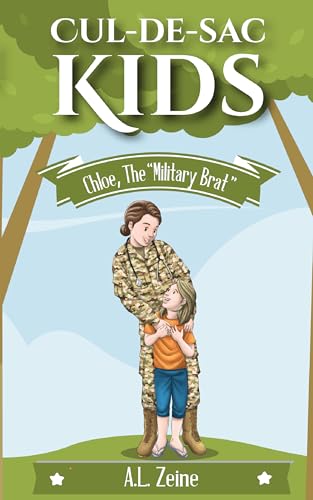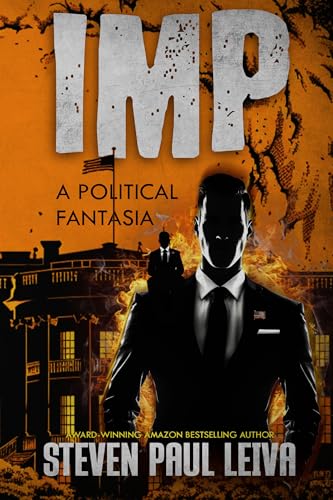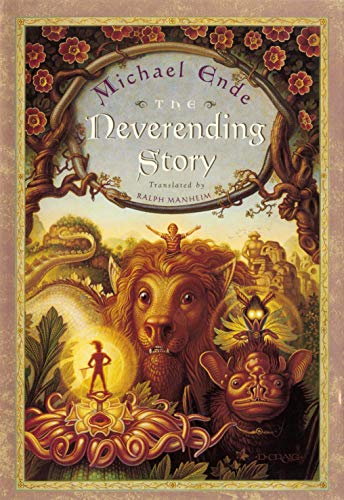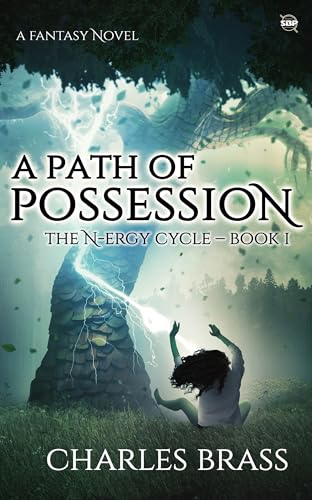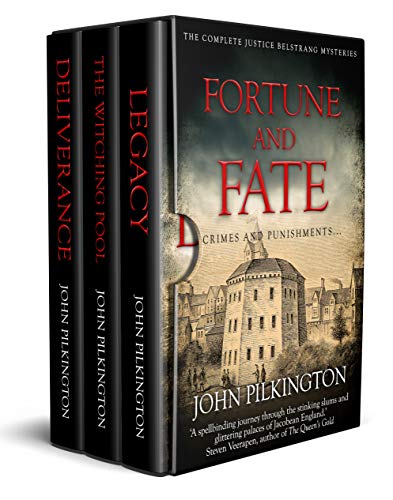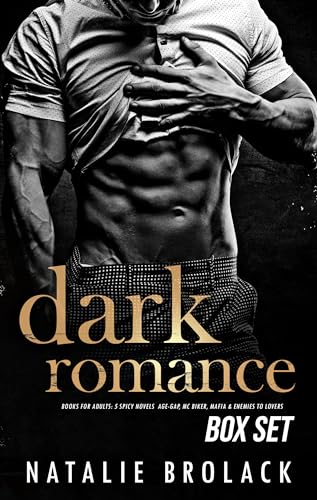A poetic journey through the landscape of the human heart, reminiscent of the work of Alice Munro and Richard Ford, SHAKING OUT THE DEAD will take residence in your soul.
“You will be cheering and crying along with the characters…”
Geneva is a woman for whom love is a lesson.
Paris is a man for whom love is a feat.
Tatum is a woman for whom love is a tragedy.
Over the course of four seasons in Southwestern Montana, all of that will change.
Discover this remarkable debut novel while it’s 23% off the regular price!
Shaking out the Dead
by K M Cholewa
Geneva is a 62-year-old woman for whom love is a lesson.
Paris is a 29-year-old man for whom love is a feat.
Tatum is a 34-year-old woman for whom love is a tragedy.
But because love is none of these things, none know love.
Over the course of four seasons in Southwestern Montana, all of that will change.
Praise for SHAKING OUT THE DEAD:
“…an author in command of her tools…the story will carry you along to a destination you will not expect.”
“I highly recommend this novel to anyone daring to meet this wonderful cast of characters…”
“Tight, implacable, penetrating, honest…brave and ambitious….”
an excerpt from
SHAKING OUT THE DEAD
by K.M. Cholewa
1
Paris was a Montanan without a myth. He didn’t ride horses, hunt, fish, or ski. He had never worn a cowboy hat or squinted across the range. Paris was blue-collar bred, and his body was strong — built not by gyms and barbells, but by physical work and car-less, pedestrian life. Behind his eyes there were no big skies, just a duty-bound psyche. His destiny, his purpose, he thought, was to notice. The pretty and the bad. The ugly and the good. See it and let it be. He decided long ago he would not want. He would lighten the burden of the world. Be one less pair of sticky hands.
He pulled the hood of his sweatshirt over his head and tugged the sleeves over his hands. He had gotten off from work at 5:00 a.m. and, despite the chill, wasn’t in a hurry. As he walked, his eyes slipped through the landscape. He was intimate with the details. The sidewalk cracks, small graffiti, and low-lit doorways. In the hours before light, the street’s subtle decay was not erosion, but the peeling back of veneer to reveal a spirit. Paris worried for this place. He knew, as with all places with souls, there would be those who would come to feed. Their coming caused a prickling in the air, made the molecules quiver.
With a sweatshirt-covered knuckle, he pushed his glasses up the bridge of his nose. He was six feet tall, weighed in at one seventy, and his feet sweated in his boots as he walked through the clean, timeless in-between when night and morning still locked hands, prudently, in a private space beneath the horizon. It was a city in a valley, the mountains in the distance slouching, black silhouettes against the blue-black curve of space. Paris acknowledged creation’s glory though it was, in fact, colored sprays of broken glass in an alley, the under- passes, deserted railroad yards, and cars with three flat tires curbed for months that called to him as he made his way home. The mountains didn’t need his love. The litter reached to him.
Turning down a dark side street, the earliest of risers still barely stirring behind their dark windows, he headed for Tatum and Geneva’s duplex to perform his house-sitting duties. Geneva was in Europe. Tatum was in Chicago because her sister was sick. Four days ago, Tatum had come into the Deluxe, the diner where Paris worked, to tell him she was leaving.
Other than Tatum and Paris, the diner had been empty, an un-bussed table the only sign of recent life. Business would pick up later around eight and then spike again when the bars let out. Then, briefly, the Deluxe would buzz. Paris would serve fried eggs and tuna melts. Customers would toss crumpled napkins onto ketchup-smeared plates. The Deluxe was one of only two choices in the valley for after-hours food. The Deluxe or the Pie House. That was it. All knew in which they belonged. The more criminal the element, the better the bet they chose the Deluxe. Even dangerous people need places to feel safe, and Paris deftly served this demographic. He understood their needs. Being feared is a double-edged sword: you are left alone, but you are watched.
Which is why purple-haired young adults, innocently pierced, patronized the Deluxe, as did aging men with neither wives, children, nor the means nor understanding to purchase the appropriate camouflage that enabled one to blend with the calculable citizenry. The Deluxe gave them a break from being an affront to society. It was a place to be ordinary, simply eating without being perceived as doing so in rebellion against or in contrast to the status quo.
Only rarely did Paris get one of those preening, dark angels — all aggression, looking for fights, and flanked by boy lieutenants. He was glad such types largely hunted elsewhere, but it was not because he feared them. Predatory males had always passed Paris by. He’d heard the stories of other men and boys being chosen, antagonized, beat up, or scared shitless. But Paris was never plucked from the herd and fed to the pack. He liked to think it was because he was an artist. He believed his place outside the social order allowed him to serve his purpose of bearing witness and metabolizing the whole while humbly serving it soup.
But that was not the reason.
Paris was left to his own because he could not be gauged. Was too calm. In control, but not competing for it. Not computing rank. He could have been a simple man who stood for peace, a bodhisattva, a holy man. But just as likely, he could be a motherfucker with a knife in his boot, willing to beat you with a bat ’til your skull broke, if that’s what it took.
He wasn’t left alone because he was one or the other. He was left alone because other men couldn’t tell.
Paris had been surprised to see Tatum coming through the lurid lighting of the bar, through the orange-green flash of keno machines, toward the restaurant in the rear. It was rare for him to see her there, her presence usually just a figment of his imagination. She had slid onto a round stool and slipped a short strand of dark hair behind her ear. The fluorescent lights glared, flattering nobody. Paris stood behind the dulled, but clean, counter in his whites, his demeanor, as usual, disguising his size. Bottles of ketchup, mustard, and Tabasco cluttered the space between them. Paris balanced one bottle of ketchup on another, merging them into one. He did the same with the mustards. The Tabasco, he simply wiped clean.
“My sister’s sick,” Tatum had said, “maybe dying. I’m not sure.”
Paris removed a near empty ketchup from its balance.
“I have to leave,” she said. “Warp speed. I’m not sure how long I’ll be gone. It’s hard to tell what the situation is.” She reached into her coat pocket and started pulling keys off a ring. “I’m watching Geneva’s apartment. She should be back Thursday night. Could you check in on her cat? Feed him, scoop his box?”
“Yeah,” Paris said, “sure.” He wiped the rim of the bottle filled with the sludge from others. He shook out his rag and hung it beneath the counter.
“Here’s the key to my apartment,” Tatum said, sliding a second key toward him. “If I’m gone overly long, maybe you can water the plants?”
Paris looked at the key. Guilt and excitement made his chest and face softly buzz.
“Or you could ask Geneva to do it,” Tatum said, “after she gets back.”
Paris lifted the keys off the counter.
“I can do it,” he said. “You okay?”
Tatum forced a smile, one meant to reassure him.
“I’m fine.”
Paris pocketed the keys, grabbed a bus tub, and walked around the end of the counter. He stepped to the dirty table behind Tatum. She spun on her stool, following him with her eyes. The dining room was worn and beaten with time, but not dirt. Paris made sure of that. He paused while loading the tub. He had a question for Tatum but wasn’t sure what it was. He turned to face her.
“Yes, Margaret hates me,” Tatum said, finding the question for him, “but that doesn’t mean we’re not close.”
Paris flinched inwardly.
“Gotta go,” she mouthed.
Paris watched Tatum leave, watched her cross the line between the diner and the bar, the line where the linoleum met the worn, red, cigarette-scarred carpeting. Her coat flared around her, reaching mid- thigh. She turned into a shadow as she opened the door, and the glow of dusk briefly illuminated the space around her, the space she was so adroit at cultivating.
Paris thought about her driving through the night. He thought about the key in his pocket and that he could be alone, again, in Tatum’s apartment. He would not snoop, he told himself. Not again.
But first, there was tonight. Near nine, the high school degenerates would arrive, brash and boisterous, throwing food, and paying in piles of change. Around one, after the bars closed, hungry loners would speckle the room eating their solitary meals and delaying going home as best they could. Then, around two, two thirty, the women would begin to arrive, taking extra effort to be natural and not speed through the casino as the bartender, Blair, finished closing up. Maybe just one of the women would come. Sometimes, there were as many as five. Paris knew the Deluxe was a secret among the women of the street. The homeless. The hiding. The shipwrecked. In the wee hours, he doled out soup from the day’s vat and served it with the cornbread he made himself when he came on shift. No one ever ordered. No one ever paid. Blair probably knew what was going on, but none of it was ever discussed. Paris knew that to retain the beauty of some things, they must never be named.
2
Tatum approached the casket from the back of the room, aware that she was The Sister, the Black Sheep. She didn’t know Margaret’s friends, but they knew her. Tatum felt their eyes slip from her head to her toes and back up again, their calculators clicking away, adding up details of shoe quality and unpolished nails, trying to penetrate the reality to find the reputation. But reputation is a flat lens. Tatum was there in 3-D. At the front of the room, Tatum sank to the kneeler, folded her hands, and bowed her head.
Piety, even the false kind, works like a repellent. She was left alone.
Tatum had a knack for getting people to leave her alone.
Kneeling, she let her eyes rest on Margaret’s face. To Tatum, Margaret’s expression from life had carried over smoothly into death: the look of someone who got everything she wanted and resented that it wasn’t good enough because it could never include Tatum never being born.
It was that kind of sister-hate.
Tatum was certain that Margaret hated her no less in death than she had in life. In fact, she probably hated her more, and if strong emotions — hate, for example — were powerful enough to wake the dead, Margaret might rise at any moment. As it turned out, single parenthood was not part of the plan for Margaret’s grieving husband, Lee. He had sentenced his daughter, Margaret’s precious Rachael, to return to Montana with Tatum.
The thought of Margaret’s fury with such an arrangement gave Tatum a twinge of discomfort with the corpse. She rose and made her way down the aisle toward the rear of the room, passing between rows of chairs arranged, rather bluntly, for a viewing. She had not packed for a funeral, and so she wore Margaret’s black, wool skirt that was cut on the bias and stuck out from Tatum’s slim hips like fins.
It did not surprise Tatum that Lee would pawn off his eight-year-old daughter on a woman whom the child was raised to hold in contempt and do so before the child’s mother had a chance to get into her grave, much less cool in it. Lee was not someone who made sense to her. She didn’t know if he was an idiot, but she did believe him to be a liar. Liars’ behavior often doesn’t make sense and makes them seem like idiots, fake idiots. That’s how Lee seemed to Tatum, like a fake idiot.
Tatum didn’t know if Margaret’s crew of scary friends thought Lee was a fake idiot, but she did know this turning over of the child had been met with wide-scale disapproval, all done in whispers. The disapproval part made sense to Tatum too. She shared their sentiment. But she didn’t understand why they seemed to act like it was her fault.
She didn’t meet their eyes as she walked between the rows of chairs. She kept her own olive-colored eyes focused on the double doors ahead.
In the hall, mourners from other wakes loitered in twos and threes and moved in and out of restrooms. Tatum made her way toward the front doors and stepped outside to stand in the wet November night.
Humidity. Chicago humidity. November humidity. Her skin loved it, and her hair thickened and curled in it. It was home, yet so different from home in Montana where the dry air chapped hands and left the hair brittle. Tatum hugged herself and watched the flows of traffic pulling away from each other in opposite directions — busy, orderly, all keeping to their side of the yellow lines.
Tatum stepped from beneath the funeral home’s awning and looked across the four lanes. She remembered Geneva four years ago dragging her into the empty street in front of their duplex. Geneva had taken hold of Tatum’s hand and instructed Tatum to close her eyes.
First, they walked against the flow of traffic. Tatum, with eyes closed, had to admit that she could feel it, the energy resisting them, flowing in the direction traffic moved even though the street was empty. Then, they turned and walked with the traffic’s flow, rode its invisible current. It was as though traffic had dug a groove and trained the energy. It ran like a river in its bed.
Tatum considered how much more forceful the flow might be here in the city where the traffic steadily pushed on without rest. So much activity, so many worlds. It made the old couple across the street seem lives away as opposed to feet and yards. Tatum watched them through cracks between passing cars as the old man held both the restaurant door and the umbrella as the bent woman in a rain cap maneuvered her walker inside.
The restaurant’s name was Cardella’s. It was square and somber, catering, no doubt, to the hungry bereaved. Tatum wished her friend, Paris, were here with her. He’d see it in paint. He’d entitle it Mourning After.
Tatum looked up into the haze of light that pooled in the city sky. The mist around her broke a sweat, releasing quick slivers of rain that seemed to step out from the fog and fall. Because she was thinking of Paris, she didn’t move for cover. She let the rain slap against her skin the way Paris would. It felt good to do what Paris would do.
But thoughts of one man turned to thoughts of another, and Tatum opened her eyes and stepped back beneath the awning. Loss. Her own didn’t rank among such heavy hitters as Margaret losing her life or Rachael losing her mother and home. Tatum had lost a boyfriend. A love. Vincent had dumped her two years ago and then disappeared. She hadn’t heard a word from him since. Nothing. She tried to let it go and move on, as they say. She had even thought she was doing it, moving on, but then Vincent would ride in on another thought.
She had talked about it once with Geneva, wrapped in blankets on the patio on a September night. She told Geneva of the way Vincent would swoop into her thoughts. In the moment, Geneva hadn’t said much. But the next morning, Tatum found a folded up piece of paper slid under her front door.
“Unrequited love is very stable,” it said. It was signed — G.
~~~
The next day, graveside, mourners huddled in the crisp, clean cold. The sky was shockingly bright as Margaret was buried in a grove of oaks on her and her husband’s six acres west of the city. It was not Tatum’s first funeral. Not her first coffin. Cancer had taken her father fairly young and then her mother six years back when Rachael was only two. Wanting to maintain family ties, Tatum had made a point of driving back to Illinois once a year. Margaret would receive her, duty-bound. But by the time Rachael reached kindergarten, she had realized that within the clan she outranked her prodigal aunt. Despite her young years, her snub was most accomplished.
Tatum stood in the inner circle, closest to the coffin, as prayers were offered and roses were placed on the polished mahogany. The minister asked those congregated to join hands. As there was no one to Tatum’s right, her hand hung empty at her side. Her left hand, too, hung empty as Rachael had turned away from her toward her father, the fingers of both of her hands curled into his coat pocket.
Tatum wondered what this day might be to Rachael somewhere off in the future, on a late night, years away, when Rachael was grown and lying in a lover’s bed, touched and open. In a faraway voice, would she tell him her tale of that first love lost? Would the day still be vivid to her, right down to the feel of the wool of her father’s coat beneath her fingers, the cloudless sky, and the notes of the violin turning to her with open hands, about to say something, before dissolving into grace? Or would her story be of cold motherlessness, slippery shadows, and photographs divorced from touch?
Tatum reached toward Rachael’s long brown hair but then let her hand fall. Rachael looked over her shoulder as though she had felt the hand creeping toward her. Tatum noticed no flash of hate from Rachael when their eyes met as she had in the past. Just a sweet blank face with a shard of anger cut deep in the back of the eye.
The violinist stretched the final note. It hung in the air, seeming to hold up the mourners, as if when the note ended they would all collapse at once onto the cold autumn ground. But as the note faded and vanished, only hands dropped. Rachael looked away from Tatum, and they stood in new silence.
Lee broke the trance with an escaped sob. Tatum looked to him. He was handsome without character, mid-thirties. He was tall and lean. Though more attractive than a Q-tip, he reminded Tatum of one nonetheless.
The casket was cradled in a sling and lowered by six men holding the sides. When it reached its resting place, the group murmured an Our Father. Tatum didn’t bother to mouth along. She was listening to Vincent’s voice in her head — Vincent, her lost love, grumbling about the cost of the casket and the resources wasted in sending the dead into the earth.
The prayer ended. The minister closed with canned funeral rhetoric and a vague tribute. Too many adjectives, Tatum thought, not enough verbs. She wanted to raise her hand. “How so?” she wanted to say to the minister’s assertions about Margaret’s goodness. “Give me an example.”
There was a collective “amen.” Quietly, the group dispersed, hugging separate hugs, sniffling, and moving toward the house for somber conversation and solemn hors d’oeuvres. All very respectful, Tatum supposed. But given how difficult it is to let go of lovers, favorite coats, and old letters, she thought, how in God’s name can a spirit break free from its precious body without stomping feet, clapping hands, wailing and raging? Go, go, go. We holler and wave and encourage the marathon runner to make it those final yards, to push harder from a strength not physical. Then, at death, we mumble a civil hymn and talk white noise. How’s the soul to know in which direction to fly?
At the house, despite being Margaret’s closest blood relative other than Rachael, Tatum felt distinctly like an outsider, a slightly unwelcome guest. She ladled herself a glass of punch and plucked a stuffed olive hors d’oeuvre from the buffet spread, a mix of catered food and homemade offerings. She stepped among the people clustered in small groups having quiet conversations. Tatum tried to blend without actually interacting but thought that she might be drawing attention to herself with her persistent pace. So, she sidled up where Lee was talking to one of Margaret’s more frightening-looking friends, a step or two back from the conversation. Lee was describing the chosen headstone with its inscription, Wife and Mother.
Wife and Mother, Tatum thought, a generic tribute. But critiquing the epitaph, she imagined, would be poor form, so she focused on the stuffed olive she was holding, calculating how to bite it in half without making a mess, until she detected an awkward silence. She looked up. Lee was gone and Margaret’s friend was looking at her.
“She deserved to see Rachael grow up,” the woman said, obviously repeating herself. What was her name? Marley? She looked like a recipe for pretty gone awry. Every strand of blonde hair was the exact same color. She had blue eyes and symmetrical features. All the right ingredients, and yet, they added up to something else.
“Yes,” Tatum stuttered. “But I’m not so sure people get what they deserve, good or bad.”
Marley stared at her. Tatum bit her hors d’oeuvre, needing something to do. The half left behind on the toothpick broke and fell toward the floor, Tatum catching most of it in the palm of her hand while still chewing on the half in her mouth. Marley fake smiled at her, said “Excuse me,” and walked away.
Tatum found her way to the kitchen to dispose of the olive bits that had fallen to the floor. She washed her hands and slipped away from the gathering to Lee’s den. She would rummage through the phone books to keep herself occupied. She’d done this here before and found the phone books in a pile under the same side table she had in the past.
In Montana, six or seven books covered the whole state. Here, it took that many to cover the Chicago suburbs.
She flipped through the phone books, looking through the G’s for Vincent’s name and number. Vincent Goes Ahead. Though a big family name on the Northern Cheyenne reservation in Montana, “Goes Ahead” would not be a common name in the Midwest. There would not be a list of right name but wrong numbers to call and interview. Tatum looked for Vincent’s number whenever she left town, wherever she went. Losing a person to death may not be a cakewalk, but losing one to his life was considerably more complicated. In his final message to her, left on her answering machine, he said he was confused, but she knew better. The confused stay put. It is clarity that provokes us to action.
Tatum sank into the soft leather of the wingback as she turned phone book pages. Clarity and confusion. She knew the difference. With confusion the mind mulls, chews, and frets. It trips and tangles on its own so-called logic. Lots of activity. No movement. With clarity, on the other hand, the thinking is done. It was clarity Tatum felt before ingesting a fistful of pills in a Nebraska motel room ten years back. Clarity she felt before playing chicken with a bullet.
Ah, the drama of youth, she thought, smiling to herself. Her death fantasies had become considerably more tame with age. Her current one featured her dying not by her own hand but of a terminal disease that while not pleasant, of course, would not debilitate her completely until the very end. She would have a party before the fat lady sang, she had decided, a pre-wake kind of thing. Guests would receive a string of raffle tickets as they came through the front door, and at the high point of the evening, she would raffle off her stuff. From her sickbed, she would draw the numbers from a hat. The sofa: 3-6-2. The coffee table: 1-7. Books. Household appliances. The big-ticket items would provide the night’s highlight. The car. The boom box. The guests would see the raffle as a perversity, a peverse request but a request of the dying, not to be denied. Secretly, they’d cross their fingers and hope their numbers were lucky.
By the evening’s end, only her sickbed and a nightstand would remain. Tatum had shuffled through dead people’s belongings. She didn’t want it happening to her. She would clean the place out in advance, she decided. There’d be nothing left but maybe a missed safety pin ground into the carpet or an old broom leaning in a corner.
Tatum returned one phone book after another to the pile, once again coming up empty. She didn’t know that she would actually call Vincent, even if she did find the number. She certainly didn’t know what the hell she’d say.
Then, she stood and wandered in the den reading the spines of books and examining trinkets. She absently wondered what Lee would do with Margaret’s things — her clothes and her saved mementos. Though there would be no raffling of Margaret’s belongings, at least one item should have been. Rachael. Tatum suspected that Margaret would have been more comforted by a raffle to the general public than her husband’s decision.
By the time she emerged from the den, the mourners had dispersed, leaving crumpled napkins and glasses of melting ice. Tatum collected some glasses and dropped them off on the kitchen counter. Margaret’s friends filled Tupperware and washed the dishes brought full of microwaveable comfort to swallow and digest along with the immutable facts. Tatum couldn’t detect an opening in the kitchen’s traffic pattern, a way to jump in with dishtowel or sponge, so she said good night.
Tatum stepped out the front door and looked at the sky. Reluctant reds and golds crushed down into the horizon. It was her time. Vincent always knew that dusk was her moment and would put his arm around her as she gravitated to the window, the porch, wherever she had to go to witness, to see the cars opening their eyes, waking to their true and secret selves. The stars emerging, twinkling with sly. Vincent told her on one of the first nights they were together that she was born with a broken heart, and she believed he knew her for that one line.
What was it? Six months? A year? Before his tenderness turned to a sigh and an exasperated, “Lighten up.”
Alas, love is not unconditional. Like all living things, it thrives when conditions are right, withers in a drought or if it is cut off from light.
Tatum sat on the concrete step and looked out at a strip of deep purple squeezed between the darkening sky and horizon. Sunset on the day of Margaret’s funeral. Tatum’s stomach turned. Sick with grief, she thought, though her eyes stayed dry.
Death. Tragic and unfathomable. Yet, Tatum found in it some- thing satisfying. It was, in many ways, a relief. In every other part of our lives we have options. We make choices, and we get second chances, opportunities to correct choices poorly made. We lose things but know there’s the remote possibility of getting them back, finding them in a forgotten drawer or pocket, of seeing them at an airport in Denver or Salt Lake. But not when someone is dead. Dead is done. That person is gone. Nothing you do, no corrective actions or changes of mind or per- sonal transformations will alter that fact. It is final. Something where the only option is to let it be.
3
Paris arrived at Tatum and Geneva’s duplex and turned the key in the lock of the front door. Inside, there were two more doors, Tatum’s on the right, Geneva’s on the left. The old brick building was worn but not dilapidated. The crown molding in the hall was dark and heavy; the baseboard, faded and scratched. The hardwood floors were unrestored but far from shabby. There was nothing new and nothing flimsy about any of it.
He tended to his chores at Geneva’s first, buying time to see if he could concoct a reason for entering Tatum’s apartment, even if just for a second, to breathe in its scent, which was the scent of Tatum. But in fact, it was hardly a smell at all. It was more like the promise of one, or one just missed. Something fresh and wet.
But there would be no reason to enter. Last time he had the key, he had snooped through Tatum’s things, all the while skin prickling with the electricity of doing wrong and feeling watched. But God wasn’t watching Paris from an unseen place. Paris was watching Tatum. He opened bedroom drawers to untidy piles of clothing. He didn’t rifle, but he touched. At her nightstand drawer, he let his fingers shuffle past the flashlight, broken necklace, and Canadian money to the file folder. He lifted a corner of it and, upon seeing the black-and-white photo within, withdrew the folder from the drawer. The picture inside was of Tatum without a top on, a torso shot, her arms reaching behind her as though her hands were clasped at the base of her spine. Her smooth, flat stomach slipped beneath the loose waistline of her Levi’s, and her chin tilted to the side. Long strands of hair fell alongside the outer curves of her small, round breasts. Paris had never seen Tatum’s hair long.
Whereas “snooping” had felt relatively benign, “finding” had sent an eerie ripple through his body. Victory and guilt: a toxic cocktail. Paris felt it the next time he was with her, and the next, the “violate” in violating her privacy.
But it wasn’t only guilt he felt about the pictures. It was jealousy, too. Who was the photographer? Vincent?
At Geneva’s, Paris checked the food level in the cat’s dish and freshened the water in the small ceramic bowl. He never snooped at Geneva’s. There didn’t seem to be much need. Her inner world seemed on display. A pleasant background reek of a history of incense and scented candles made one privy to her acceptance of the otherworldly. Paris absently picked up a small statue of Kali, the Hindu goddess. Geneva maintained a healthy population of deities. Buddhas, feathers, a Mother Mary, and pagan figurines sat on window ledges and shelves. Geneva wrote the local alternative paper’s version of Dear Abby, Dear Belinda, and a stack of letters sat on her desk. Her responses to the distraught weren’t based in psychology, philosophy, or religion. Geneva shot from the hip. Whatever the question asked, the answer was the one already in her head derived from god-knows-what yet applicable to all questions at hand. Geneva thought a lot about a lot of things but never seemed finished with any one thought. She claimed to have a promiscuous mind, a slut of a mind, even. One day she might be in love with one idea, and the next day, in bed with that idea’s worst enemy.
Paris put down Kali and turned toward the most distinguishing feature of Geneva’s living room, an entire wall of albums, rows and rows, worn and dusty, but with all the integrity of the well-used and well-cared for. He passed them on his way out. In the foyer, he stood facing the door to Tatum’s apartment.
Inside, unlike at Geneva’s, there would be no trinkets, papers, and collections. If it weren’t for the dozen or so plants, Tatum’s apartment would be stark. A foam sofa. A coffee table and a secondhand orange chair and ottoman. Nothing hung on the walls, though she did paint one of them a pale, sage green and another displayed a floor-to-ceiling, jagged crack from an earthquake long past. The surrounding mountains rose on active faults. The city sat in a bedrock bowl filled with sediment. Paris had heard it compared to a bowl of pudding. Tap the bowl and the bowl shakes, but the pudding shakes even more.
Though Paris fingered the key in his pocket, he forced himself to turn away. He left the duplex and backtracked toward downtown, thinking about the debt he owed to Tatum. He had looked at the pictures. He had violated her privacy. Stole intimacy. He meant to pay her back.
~~~
Home by 5:45 a.m., Paris descended the steps to his basement apartment beneath a barbershop. He tossed his keys into the ashtray near the door and pulled off his work boots. He stashed them, brown and crumpled, in a closet in the far corner of his apartment. In the bath- room, he turned on the faucet in the tub and washed his feet, scrubbed the bottoms cool, uncrowded the toes and let water pour through their gutters.
Feet cold and clean, he returned to the main room. A bathroom and a main room, that was the extent of his apartment. He thought of the main room as having stations where assigned activities were performed. Not unlike the Stations of the Cross, each spot had its designated theme: Paris Cooks for the Hundredth Time, Paris Stares Out the Window, Paris Draws, Paris Sleeps. More humble than even Tatum’s, he had no sofa, just the kitchen table and two aluminum chairs that came with the apartment. His bed was a mattress on the floor.
He went to the stretch of wall that amounted to his kitchen and opened the drawer where he kept his pile of sketches. He reached to the bottom and pulled out a clean sheet. Leaning on the counter, he sketched Tatum’s silhouette in the corridor of keno machines and tables that flanked her as she had left the Deluxe. He wasn’t drawing seriously. Just doodling. Though, he thought, just maybe, he could finish a picture like this, something done from behind. No eyes for the sketching hand to tangle on. No eyes to break the flow and create that nervous energy that says, Do the dishes. Take a nap. Jerk off.
Paris remembered telling Tatum about his trouble with eyes. He had told her, looking at her grimly, as he slid open his kitchen drawer between them revealing the evidence. He had jerked his head a bit to get her to look down. Tentatively, she had reached into the drawer and shuffled through the contents — all the unfinished sketches and ambitious doodles on scraps of envelopes and the backs of flyers. They were portraits, mostly. Customers from the diner. People in the coffee shop. Smokers on stoops.
She had lifted an uneven stack from the drawer and then laid them out on the counter, slowly, one by one. She placed a hand gently on one or the other as her eyes traveled over them and among them as though they referenced each other, like puzzle pieces.
“These are good,” she said. She held her chin and nodded. “I’m impressed.”
Paris could see she was sincere, but he wasn’t looking for reassurance.
“I can’t finish any of them,” he confessed, pushing his glasses up his nose. “I get working on the eyes, then something creepy happens.” Tatum leaned on her elbows and pulled one sketch closer, then another. She studied the spaces where there was crosshatching or white empty sockets where there should have been irises and pupils. Glimpses through windows of souls.
“Creepy, how?” she said.
Paris stepped away from the drawer and dropped a pouch of grounds into his Mr. Coffee. Tatum leaned on the counter, one foot stacked on the top of the other. In the gray light of the kitchen, in her painter’s pants and jean jacket, her silhouette could’ve been that of a twelve-year-old boy. Her head turned to him, watching him, knowing the wait was part of the answer.
“Here’s how it feels,” Paris said, filling the coffeemaker with water and throwing the switch. “I’m sitting in a chair. I’m hunched over, and there’s just this ink or pencil, these lines appearing.” He paused and gathered words. “Then I get to the eyes, and it seems like, to get them right, I have to become the person whose eyes I’m drawing.” He shot Tatum a look. “Like I have to feel how it is to be them. So, as I’m drawing, it starts to feel like I’m . . . changing.”
“Changing,” she said.
“Transforming?”
Tatum crossed her arms thoughtfully and leaned into the counter with her hip.
“You mean, like turning into a werewolf?” she said.
“Same principle.”
“Well, that sounds cool.”
“Cool?” Paris said, deadpan. “I take it you missed the movies. Those guys running through the woods trying to escape the moon, scratching at the hair growing in under their shirts.”
“Hey,” she said, half-laughing, “if you turned into a werewolf, would you still need your glasses? ’Cause that would look weird. Something definitely to avoid.”
“Well, we’ll never know,” Paris said. He was unsure whether she realized the weight of what he was telling her, that what happened when he drew eyes rode a fine line between something sacred and something disturbing. The very stuff of secrets.
“It feels wrong,” he said. “It’s intimate but one-sided, which makes it creepy and me a creep.”
Paris stared absently at the pictures on the counter. Tatum was quiet, but he could feel her watching him. He looked up and met her green eyes. She smiled.
“You know what else I bet is intimate?” she said.
“What’s that?”
“Murder,” she said, with an evil flick of the eyebrows. The coffeemaker spit out a gurgle.
“Murder,” Paris repeated.
“Well, not drive-by shootings and gun fights, of course,” she said, “but those one-on-one stranglings, the bare-handed killings.” She mimed a choking, her hands around a neck.
Paris gathered his sketches back into a sloppy pile.
“That’s why I’m not a murderer,” Tatum said. “Fear of intimacy.” She smiled, pleased with herself.
“And why I’m not an artist.” Paris dropped the sketches into the drawer. He stepped away and poured them both coffee. He handed Tatum a mug.
“Although,” Tatum said, cupping the mug in both hands, “maybe what murderers really suffer from is the combination of the desire for intimacy, and the fear of it. Murder gives them bang for their buck. Thumbs pressed into the front of the throat, witnessing the shock and fear, revealing the monster that they are — it doesn’t get much more personal.”
“I suppose it’s showing the worst of yourself,” Paris said. “At any rate.”
“Yeah,” Tatum said, “but a murderer is a coward. Wants intimacy without vulnerability.” She put down her mug and hopped up onto the counter, sitting near the sink. “Total intimacy,” she said, “but no chance of any awkward ‘Oh, hi’s’ when you meet by accident down- town.”
“No witnesses,” he said.
“Exactly.” Tatum lifted her mug and inhaled deeply above it. “You want advice?” she said. “Be a creep. See where it takes you before you write it off. You can always change your mind.”
“We’re talking about drawing eyes?”
“We’re talking about drawing eyes.”
It wasn’t the first secret Paris had told Tatum, and it wouldn’t be the last. He told her secrets over mugs of coffee and over wine drunk from unstemmed glasses. He told her them silently as he idly sketched her, always from behind, on scraps of paper he threw away. He placed his secrets on tables between them like they were things he had found, things he wanted to show her so she could help him determine their value. What did she think? What were they worth?
… Continued…
Download the entire book now to continue reading on Kindle
5 stars – 13 reviews!
Special Kindle Price: $7.69!
(reduced from $9.99 for
a limited time only)



